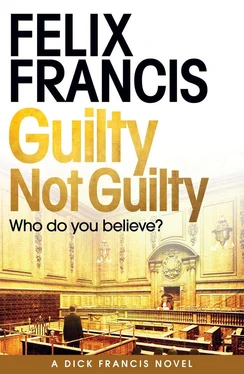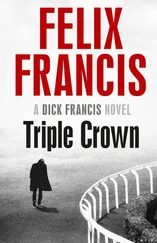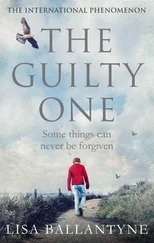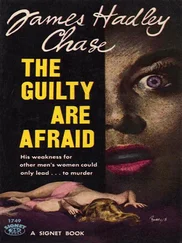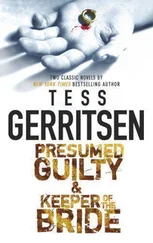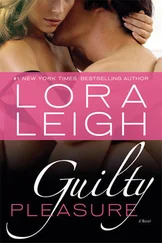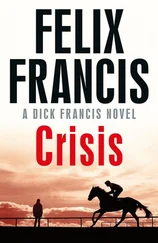The incident had bruised my ego even more than it had bruised my body.
‘You didn’t say anything to me at the time about being there.’
‘I would have if you’d won. But I thought, under the circumstances, it was best simply to drift away.’
He was right.
My clever lawyer brother was always right.
He had worked out that I would have been doubly embarrassed and distraught if I had known that he had witnessed the debacle. But, almost two decades on since the event, I was pleased that he had taken the effort to go and see me ride, albeit with such a disaster. Even now, my heart ached with the desire to have done better for him on that day. Maybe it wouldn’t have been his only previous trip to the races if I’d won. Indeed, I was sure of it.
‘At least no one will fall at the last fence here today,’ I said as the car pulled up in front of the Sandown main entrance. ‘It’s flat racing.’
I had never returned my official BHA steward’s pass and I used it to gain access. I even managed to acquire a complimentary entrance badge for Douglas and a racecard.
It felt so good to be back on a racecourse.
I hadn’t been to the races since that appalling day at Ascot just three days after Amelia had died and, even now, I went hot and cold wondering what on earth I’d been thinking of in going.
I clearly hadn’t been myself.
I wasn’t sure I was myself even now.
It was as if the death of my wife had also killed off a large part of me. Sure, I went on breathing and eating, sleeping and thinking, but it was in a parallel universe to how I had been before, seemingly not living in reality.
Part of me even expected to wake up from this torment and find everything was fine again.
I knew it wasn’t really going to happen but, somehow, I received some degree of solace from believing that it might, and I could understand absolutely how Mary had been comforted by her certainty that she would soon meet Amelia again on the ‘other side’.
‘Fancy some lunch?’ I asked Douglas.
‘What time’s your meeting?’
‘After the first race. That’s at five past two. We have plenty of time.’
We went to the champagne and seafood bar and found a table in the window that someone else was just vacating.
‘I’ll get the food,’ Douglas said. ‘You keep the table.’
Walking with crutches was not conducive to carrying anything so I sat and waited while Douglas fetched a bottle of Moët in an ice bucket, two glasses, and a couple of plates of prawn salad with lashings of Marie Rose sauce.
‘Cheers,’ he said, raising a glass of bubbles. ‘Here’s to a fun afternoon.’
‘A fun afternoon,’ I echoed, somewhat forlornly, also raising mine.
I knew that I hadn’t been any fun to be around for months. Maybe it was time I started looking on the brighter side of life. Perhaps I’d be able to soon, once the trial was over, provided we got the right result.
Douglas and I ate our lunch and we finished the bottle of champagne, which was perhaps not the best preparation for an important appointment with the stewarding boss.
‘Where’s your meeting?’ Douglas asked.
‘In the Stewards’ Room,’ I said. ‘It’s in the weighing-room complex. After the first race, unless there’s an enquiry, in which case it will be after the second.’
We went outside into the sunshine to watch the horses circling in the paddock for the first race, a five-furlong sprint for two-year-olds.
‘Which one do you fancy?’ Douglas asked, looking at the racecard. ‘Where should I stake my shirt?’
‘Your guess is as good as mine.’
‘But I thought you knew about racing,’ he said with a laugh.
‘I know the rules,’ I said. ‘Not which horse will win.’
Somewhat surprisingly, honorary stewards were allowed to bet provided they were not acting for the particular race in question. However, I usually didn’t bet at all while at the races, as I didn’t consider it was the best advertisement for the sport for a known steward to be seen gambling, even if he was ‘off duty’.
And, far more importantly, I didn’t like losing my money, which I invariably did.
‘They look awfully small,’ Douglas said as the runners paraded past us.
‘These are just babies,’ I said. ‘For many it’s their first time on a racecourse. Jump horses are generally much bigger because they’re older.’
‘So will these go jumping when they grow up?’
I laughed. ‘Some might but I doubt it. These days, horses are mostly bred to be either flat or jumps specialists. But that wasn’t always the case. Red Rum, he of three-wins-plus-two-seconds-in-the-Grand-National fame, ran eight times on the flat as a two-year-old. In fact, his first ever race was a dead-heat win in a five-furlong selling plate at Aintree the day before Foinavon famously won the National, after that massive pile-up at the twenty-third fence. But that was back when Aintree used to stage flat races as well as jumps.’
‘Don’t they any more?’
‘No. Aintree is now jumping only.’
‘So how many racecourses are there in total?’ Douglas asked.
‘Sixty in Great Britain. About a third are flat only, a little over a third jumps only, and the rest have both, but not usually on the same day. Mixed meetings used to be quite common but now there are only a very few in the whole year. I know there’s one at Haydock in May. In fact, that might be the only one left.’
‘Why not more?’
‘Different clientele, I suppose. Different trainers. And different jockeys.’
‘But the same stewards?’
‘Absolutely,’ I said, smiling. ‘Rules is rules, either code.’
Douglas decided to keep his shirt on his back and to invest just ten pounds to win on a horse whose jockey’s silks were in his college colours.
‘Bookmakers will love you,’ I said, laughing.
We watched the race from the main grandstand.
The babies broke evenly and ran as fast as they could down the five-furlong straight course, the whole thing over in less than a minute — blink and you missed it.
Douglas enthusiastically shouted his support for his selection at maximum decibels, urging it to go faster, but to no avail. It finished sixth out of the nine runners.
‘Mug’s game,’ he said, tearing up his betting slip into confetti.
We went to the unsaddling enclosure to watch the winner come in; as there were no controversial incidents that required any action, I left Douglas there, leaning on the rail, as I went through to the Stewards’ Room.
The chairman of the Honorary Stewards Appointment Board was already waiting for me.
‘Ah, there you are, Bill,’ he said, stretching out a hand for me to shake, which I ignored.
‘Sorry,’ I said. ‘I currently need both my hands to walk with.’
Especially after half a bottle of champers.
Why did I do that?
‘Yes, of course,’ said the chairman. ‘Silly me.’
He pulled over a couple of the chairs and we sat down.
‘How are things?’ he asked.
‘Physically or mentally?’
‘Both.’
‘Physically, I am getting better very slowly. I can now walk pretty well with the crutches and I haven’t brought a wheelchair with me here today, which I would have had to do until about a week or two ago. The doctors tell me they have little or no idea if I will ever be back to normal, but I’m working on it.’
The chairman smiled.
‘As for the mental side,’ I said, ‘I hope things will be better after the trial is over. I am finding that quite stressful at present.’
‘Yes, of course,’ the chairman said again. ‘But other than that?’
‘Well, I won’t say that life has been a bunch of laughs these last eight months. It hasn’t. But I’m still here. And I’m ready and eager to resume my duties as a race-day steward.’
Читать дальше
